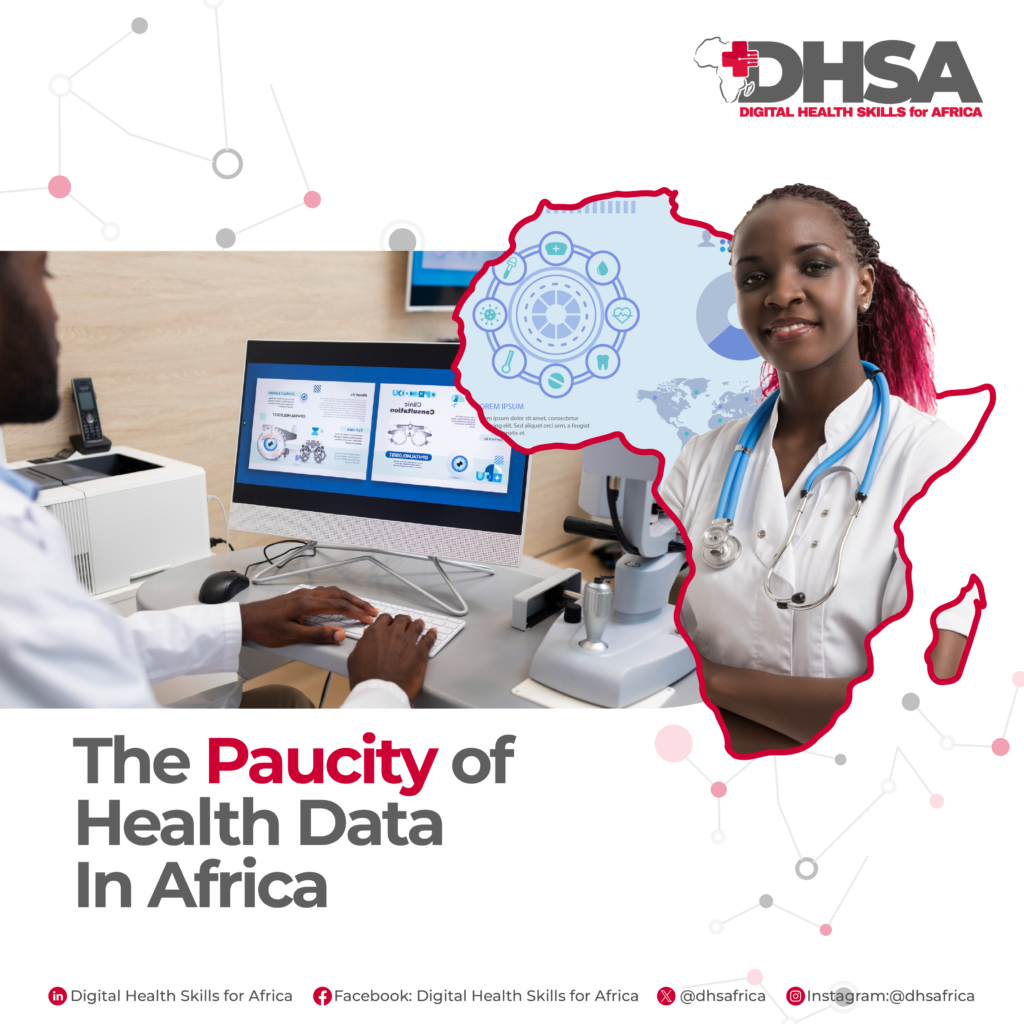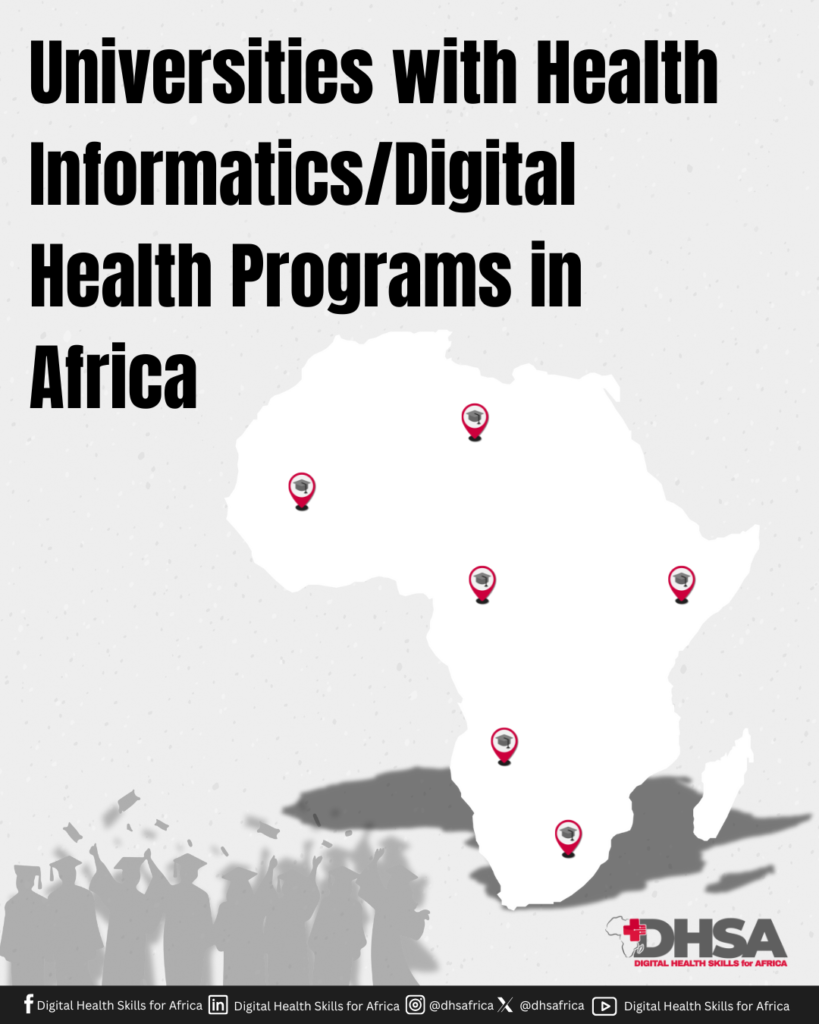
Africa faces significant challenges in advancing its healthcare systems. As the second-largest continent and home to over 1.4 billion people, it remains underrepresented in global health data. In an era where healthcare is increasingly evidence-based, patient-centred, and value-driven, access to robust health data is critical for informed clinical decision-making.
Health data encompasses personal information about an individual’s physical or mental health, whether past, present, or future. This data comes from diverse sources, including healthcare professionals and patients, such as illness tracking through mobile apps and nutritional or screening data. Accessible health data is vital and transformative, enabling providers to identify factors affecting patient health and uncover patterns for rare or region-specific diseases.
The Importance of Health Data
Global initiatives like the UK Biobank, Public Health England’s 1,000 Genomes Project, and the U.S. All of Us project demonstrate how genetic, clinical, and socio-demographic data can revolutionize healthcare. These projects help clinicians identify risk factors and understand genetic diseases, offering insights into populations often excluded from global studies. However, many African countries face a critical data gap, limiting their ability to effectively plan, monitor, and evaluate health interventions.
For example, Nigeria’s battle against polio underscores this challenge. While the global community aimed to eradicate polio by 2000, Nigeria lagged due to unreliable data. Declared polio-free in 2014, the country experienced a resurgence in 2016, costing an additional $28 million to control the outbreak.
Challenges in Data Collection
A study by the American National Center for Biotechnology Information (NCBI) reveals that household surveys are the primary method of health data collection in Africa. However, many countries lack systems for seamless data tracking. Only five African nations record birth data with over 90% accuracy, while most rely on estimates from household surveys. Mortality data is similarly incomplete, with only four countries covering 75% or more of their population. In countries with manual data systems, the data often goes unused due to quality concerns.
Moreover, much of the required data originates outside the health sector—through census and civil registration systems—making it inaccessible to healthcare stakeholders. This data deficiency hampers Africa’s ability to improve healthcare delivery, hindering research, policy-making, and the development of effective interventions.
The Impact of Data Deficiency
The absence of high-quality health data limits Africa’s ability to understand and address its health challenges. Integrating health data with AI and machine learning could enable personalized care and better outcomes. For instance, data-driven strategies have reduced hospital stays by 40% and improved treatment effectiveness by 50% (Web Tribunal, 2023). However, inadequate data limits research into critical areas such as antimicrobial resistance, leaving many health challenges unaddressed.
Governments and donors struggle to allocate resources effectively due to inconsistent and inaccurate data. The African Union reports that only 1% of global health spending is directed to Africa, despite the continent bearing 24% of the global disease burden. This mismatch is partly due to the lack of reliable data, which skews healthcare investments and perpetuates inequities.
Leveraging Mobile Technology
Mobile phones, though a small part of the IT landscape, offer significant potential for health data collection and delivery in Africa. Their affordability, portability, and long battery life make them accessible, even in rural areas. Studies highlight their impact: in Malawi, SMS reminders doubled enrollment in tuberculosis and HIV programs. In Rwanda, mobile systems for monitoring pregnancies reduced delays in seeking medical care.
Smartphone applications have also improved self-management of chronic illnesses, reduced unnecessary hospitalizations, and minimized drug stock-outs. Despite these successes, barriers such as limited access to advanced mobile phones, under-skilled healthcare workers, and unreliable electricity hinder large-scale reforms.
Building a Data-Driven Future
Health data is essential for improving healthcare systems worldwide, and its absence or uneven distribution poses a serious obstacle. Addressing Africa’s health data gap requires innovative strategies and a holistic approach. Proposed solutions include:
- Health Data Automation: Implement systems to streamline data collection and reduce manual errors.
- Public-Private Partnerships: Foster collaborations to fund and implement data-driven healthcare solutions.
- Investment in Infrastructure: Build reliable IT systems and improve electricity access to support digital health initiatives.
- Capacity Building: Train healthcare workers to collect and utilize data effectively.
- Open Data Initiatives: Promote data sharing to enhance research and policy-making.
- Data-Driven Decision-Making Culture: Encourage evidence-based practices at all levels of healthcare delivery.



